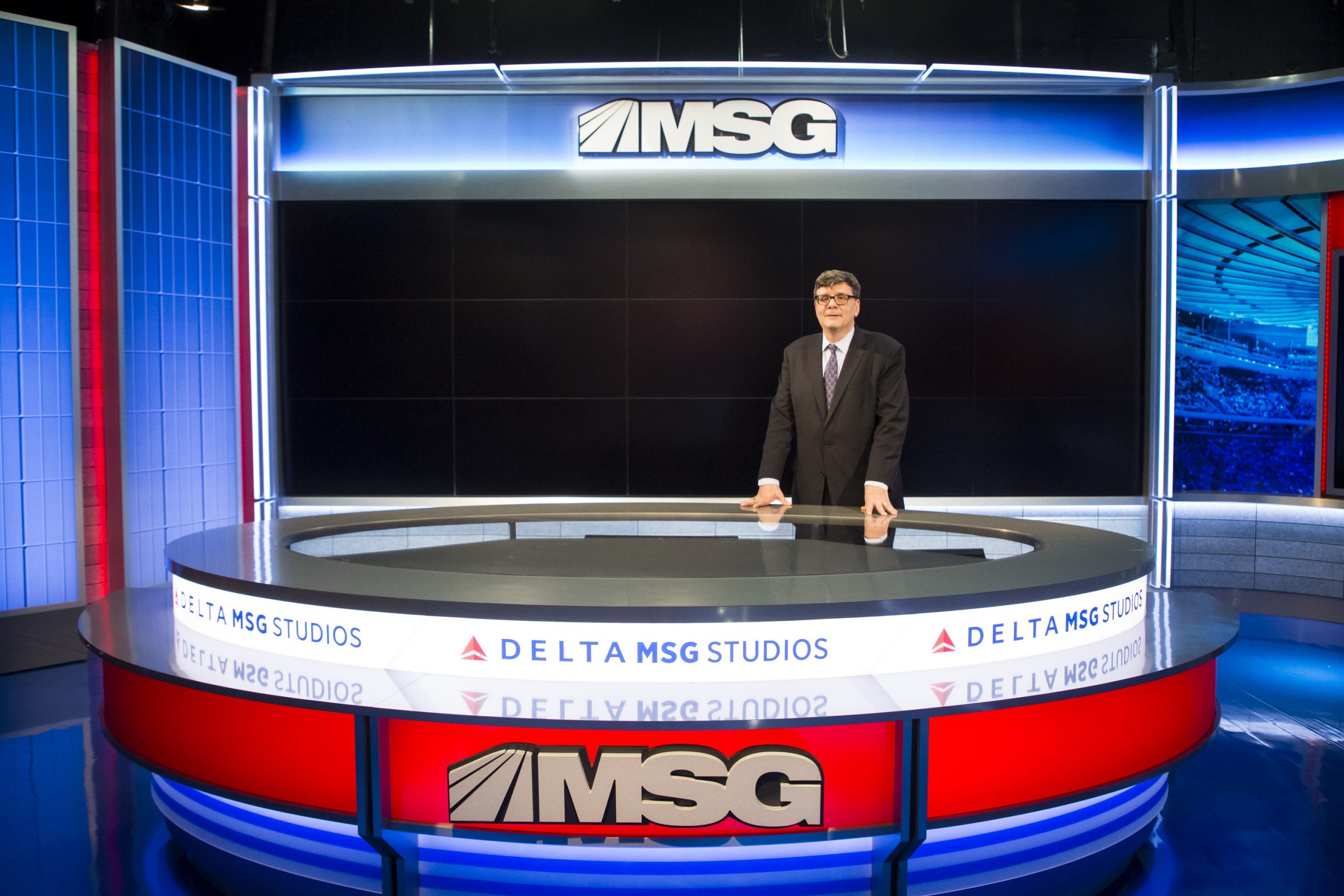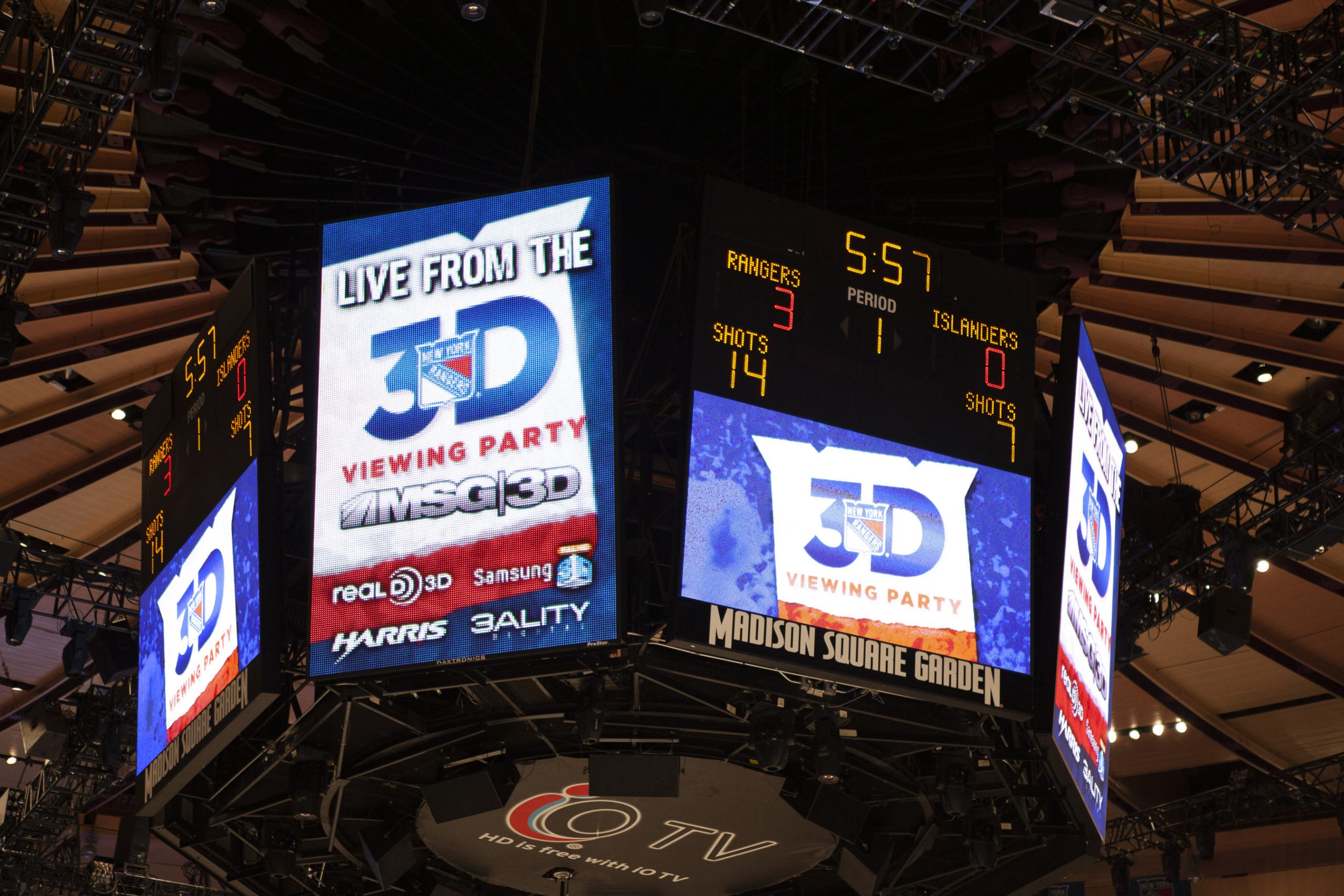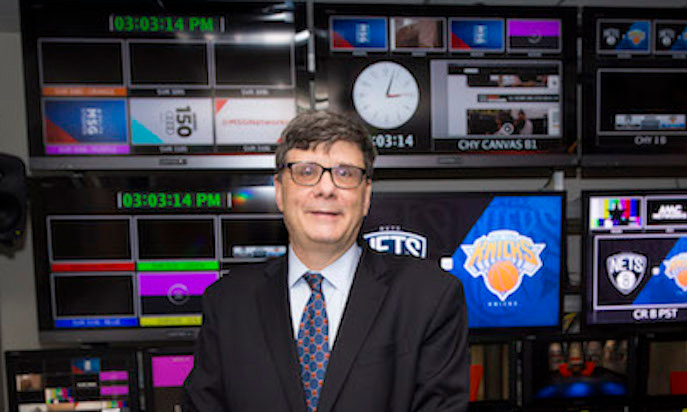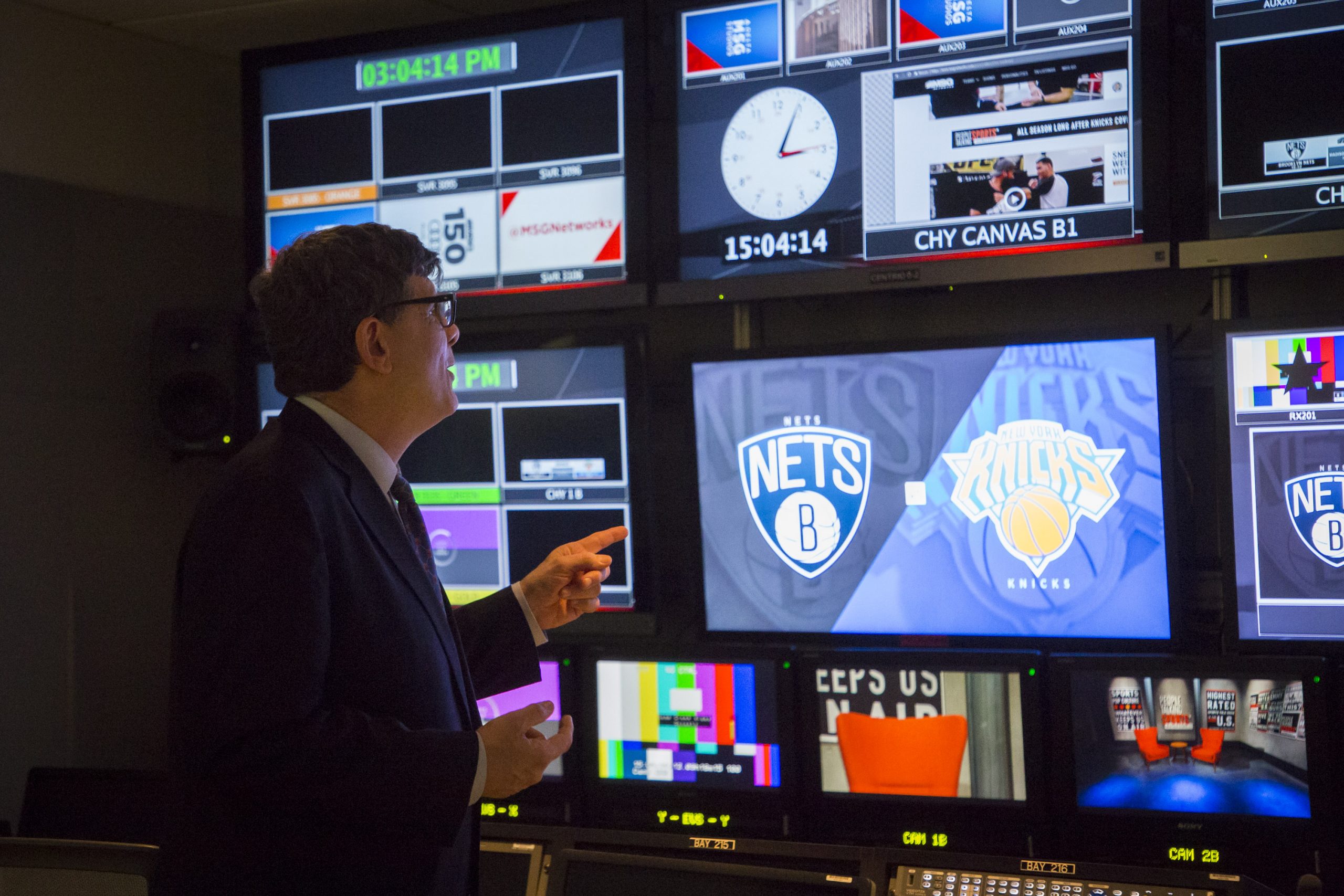SVG Sit-Down: MSG Networks Stalwart Jerry Passaro Reflects on Four Decades in the Industry
The operations exec sees relationships — in-house and with vendors — as key
Story Highlights
Longtime MSG Networks SVP of Networks and Technical Operations Jerry Passaro retired at the end of last year after more than four decades in regional sports television.
[CLICK HERE for SVG’s full story on his retirement and legacy.]
He joined Cablevision’s Rainbow Media as a promotions producer in 1981 and moved to its SportsChannel a year later. He became executive producer for SportsChannel in 1989. When SportsChannel merged with MSG Networks in 1997, Passaro became VP of programming, subsequently advancing to SVP, programming and distribution, in 2003. Five years later, he took on his last role at MSG Networks, serving as SVP, networks and technical operations, until Dec. 31, 2021.
SVG recently sat down with Passaro to discuss highlights from his four decades in the business, why now was the right time to retire, how he has seen the regional-sports landscape evolve, his management philosophy over the years, and how he views his legacy in the industry.
Who were some of the key people who were integral to your success and that of MSG Networks?
I got to work with some wonderful people and was able to accomplish some pretty great things. I’m very lucky because I had a 40-year career with basically the same first-rate organization in SportsChannel and MSG.
I worked for some terrific executives and mentors throughout my time. My success and longevity were due to the relationships I had with my direct managers and colleagues that I worked with every day, as well as the staff that I had the privilege to work with.
Most recently, having a chance to work for Andrea Greenberg, who I met in the SportsChannel days in the mid ’80s, at the end of my career was terrific. She was a great manager and mentor. And her direct reports — [EVP, Business Affairs and Distribution,] Adam Levine and the whole rest of the team — were terrific.
The thing that energized me the most in my last five or six years was the phenomenal team I had: Jackie Lyons, VP, network operations; Belinda Binkley, VP, engineering; Jeff Ostrom, VP, remote operations; Leslie Howlett, VP, programming scheduling and operations; Ken Seeman, director, engineering services. They all made coming to work every day a lot of fun.
Why did you feel that this was the right time to retire?
During COVID, even though we were working from home and it was such a tough time, my team was able to meet once or twice a day every single day. That brought us together more than ever. I knew it was a good time for me to retire because the group was terrific and they were working on all cylinders. I was confident that [the organization] would be in a good place for my [successor]. That ended up being [current SVP, Operations,] Dave Schaffer, who I got to know over the last couple of months. He’s going to be terrific, and I feel really good about where the organization is headed.

Passaro oversaw MSG Networks’ move from Madison Square Garden to its broadcast center at 11 Penn Plaza in 2010.
Which of your accomplishments are you proudest of?
Tough to say, but I feel that my proudest accomplishments are the contributions I made to our topnotch Emmy-winning productions and, most important, the solid relationships with long-time vendors like Game Creek Video, The Switch, and Brand Brigade, to name a few. Sports television is the biggest team sport in the world, and everybody needs to be working on all cylinders at all times. And I know all of those [vendors] did that.
I’m also very proud of moving the network from the Garden [at 4 Penn Plaza] to our [current broadcast center] at 11 Penn Plaza in 2010. That was a big effort and a monumental transformation, but it worked out very well.
I also had the opportunity to do a couple of rights deals in my life, including the Seton Hall deal when I was at SportsChannel just before they went to the Final Four and the Sabres deals in 2005 and 2007, which have led to the terrific relationship with the team that continues to this day.
I also established new relationships with our technical unions. One of the first things I did when I took the ops position in 2008 was negotiate a labor agreement with Local 1212 in 2009. In subsequent years, we had labor peace and built solid relationships with the union and staff, which is extremely important.

Jerry Passaro numbers MSG Networks’ Rangers-Islanders 3D telecast on March 24, 2010, among the highlights of his career.
On the SportsChannel side, I signed Mike Emrick in 1993 to be the Devils play-by-play announcer. We all know what a great career Mike went on to have, and I’m proud to have called him a colleague and friend for so many years.
One of the big highlights was the Rangers-Islanders 3D telecast we did on March 24, 2010. Even though 3D didn’t go anywhere, it was a monster undertaking, and the telecast itself worked out terrific. The telecast was distributed on cable to a few homes, and, most important, it was played in the MSG theater, and the show looked terrific. That was a lot of fun because we got to experiment and make history.
I’ve got a lot more fond memories, but, after 40 years, I think I’m getting too old to remember everything.
What are some of the key highlights of your four decades in New York sports TV?
For the past 40 years, I’ve had a front-row seat to New York sports. All our teams — the Islanders, the Devils, the Rangers, the Knicks — played for championships while I was there (even if they didn’t all win). When I joined, the Islanders were winning Cups, and I was hooked at that point. I was here to see the Mets and Yankees win the World Series when we had those rights. The Rangers’ run for the Stanley Cup Final in 2014 was pretty unforgettable. And the Garden in ’99 with the Jeff Van Gundy Knicks team that went to the finals was a lot of fun. Obviously, the Devils had some amazing championship years while I was there. I feel I had a front-row seat to the best of New York sports, and I have so many really good memories.
The New York sports market is a good place to be: the people are great, and the fans are always into it. We were truly making memories for people, and that was a great feeling.
You’ve had such an interesting career in terms of all the different areas of the business you’ve worked in: programming, rights deals, technical operations. What mentality do you have to have to succeed in all those areas?
When I started in 1981 — at that point, at SportsChannel — we had fewer than 10 full-time people, so you had to learn to do everything. When you were in the programming department, you were doing programming, on-air promotion, scheduling, and working with the people that were scheduling the production crews and booking the trucks. By listening in meetings, you just picked all that stuff up. When I came to MSG, I had most of those skills already. I wasn’t pigeonholed, so I was able to grow and learn every day.
One of the things that I pride myself on is having very good relationships with people in the business. Whether it was technical operations, strategic alliances, or affiliate sales, everything in this business is about relationships. So, even though I did a lot of different things, maintaining quality relationships was huge in all of them.
I had great mentors who took chances on me and had confidence in me. No one succeeds without great mentors, and I’m no different.
Having been a part of the business in the very early days of RSNs, how have you seen the industry evolve and grow?
When I first started, we did a 15-to 30-minute pregame show, did the game, and did a short postgame show. We also had a half-hour horse-racing show that often preceded the games. When those two shows weren’t on, there was just a [graphic] that crawled up the screen saying when the next live game would be. We’ve come a long way since then.
When we first started, shoulder programming was just stuff that you acquired to fill space. Today, it’s all top-quality stuff that we mostly create in-house.
In terms of the game productions on the RSN side today, they’re as good as a lot of the national-network shows. The facilities, equipment, and cameras that we use today on the regional level are second to none.
Nobody delivers for the hometown fan like the RSN. Now that I’m no longer an employee of MSG Networks, I’m a big watcher, and I’m more impressed than ever with the [coverage].
If you had to say, what would like your legacy in the industry to be?
Somebody who did quality work and had genuine relationships with people. And, I hope, someone that colleagues and vendors always believed they had a fair shake from.
This interview has been edited for length and clarity


